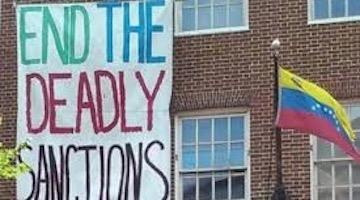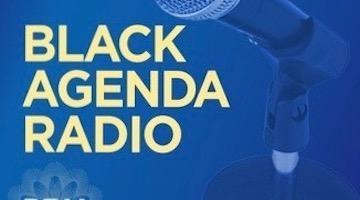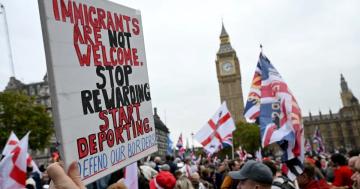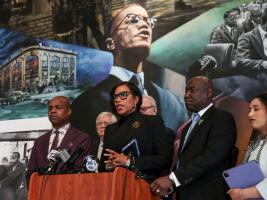The problem is even worse in Southeastern states like Florida, where fewer than 8% of applicants received benefits.
“Congress left the distribution of the benefits to individual states, leaving unemployed Americans to face a ‘hodgepodge of different state rules.”
The vast majority of Americans who lost their jobs did not receive unemployment benefits in March, despite federal and state efforts to ramp up aid to jobless Americans after large swaths of the economy shut down to slow the spread of the coronavirus.
Millions of Americans filed for first-time unemployment benefits in March but 71% of them did not receive their benefits that month, delaying aid as laid-off workers struggled to pay rent and cover basic expenses, according to an analysis of Labor Department data by the Pew Research Center. Just 2.1 million of about 7.37 million applicants received their benefits, mostly through their states' regular unemployment insurance programs.
The March tally includes self-employed people and gig workers who were previously ineligible for unemployment benefits. The $2.2 trillion coronavirus relief package approved by Congress in March expanded eligibility to those workers and added additional payments. States are only now starting to ramp up efforts to process those applications.
Indeed, millions of workers have been shut out because Congress left the distribution of the benefits to individual states, leaving unemployed Americans to face what Pew described as a "hodgepodge of different state rules governing how they can qualify for benefits, how much they'll get and how long they can collect them."
“Millions of Americans filed for first-time unemployment benefits in March but 71% of them did not receive their benefits that month.”
In some states, workers have to wait a week after losing their job before they can begin to collect benefits. Other states have rules that may make some people that do not receive a standard salary ineligible to collect benefits, leaving officials scrambling after Congress included those workers in the relief bill.
The differences in state rules governing the program have resulted in wide disparities in the number of residents who have received benefits. In Massachusetts, for example, 65.9% of unemployed residents received benefits in March compared to only 7.6% of Florida residents, according to the analysis. Overall, most of the states where fewer than 15% of unemployed people received benefits were in the South, while states that distributed benefits to more than 40% of jobless applicants were in the Northeast and Midwest. States hit hardest by the virus, like New York, California, and Washington, distributed benefits to around 30-40% of applicants.
There are also large disparities in how much benefits applicants can receive. Congress allocated an additional $600 per week to laid-off workers due to concerns that state systems, many of which run on computers built decades ago, could not handle an expanded system that distributed benefits based on previous salaries. But individual states have caps on how much they can distribute to recipients through the standard unemployment system. Massachusetts, for example, set its cap at $823 per week while Mississippi caps benefits at just $235 per week. States in the Southeast tend to have the lowest payouts, with seven states paying $350 or less, while states with the highest payouts tend to be in the Northeast.
“Overall, most of the states where fewer than 15% of unemployed people received benefits were in the South.”
While most states set a cap on benefits at 26 weeks, there are 10 mostly Southern states that have shorter limits. The $600 payments in the coronavirus relief package are set to expire in July and Sen. Lindsey Graham, R-S.C. has already vowed that Congress would not vote to extend the benefits.
"I promise you over our dead bodies will this get reauthorized," Graham said on Wednesday. "We've got to stop this. You cannot turn on the economy until you get this aberration of the law of fixed."
Graham argued that the $600 payments are more than twice the size of state unemployment benefits in South Carolina, adding up to benefits that exceed many workers' previous salaries. An analysis of Labor Department data recently found that the combined payment is higher than the average weekly wage of lost jobs in 38 states.
Sen. Bernie Sanders, I-Vt., rejected Graham's argument.
"Maybe, just maybe, we should ask ourselves how we got into a situation where millions of Americans are working for starvation wages in the first place," he said on Twitter.
While the Senate debates the future of the payments, the number of laid-off workers continues to skyrocket. Nearly 4 million Americans filed for unemployment benefits last week, bringing the total number of claims to more than 30 million.
The massive spike in applications has resulted in a nationwide backlog of about 3 million claims, according to an analysis by The Washington Post, which only covered claims made through April 4. In many states, workers haven't even been able to apply.
Ohio said it would not be able to process applications of workers included in the expanded eligibility until the middle of May. In Florida, whose broken unemployment system has repeatedly crashed and left hundreds of thousands unable to apply, officials recently suggested that applicants print paper applications, which could delay processing even further.
Florida sent payments to just 5% of about 648,000 applicants who filed their claims between March 21 and April 11.
“The massive spike in applications has resulted in a nationwide backlog of about 3 million claims.”
Gerlinde Harrison, a cook in Cape Coral, Fla., told The Post that her application is still "pending" a month after she filed it.
"No one I work with has been able to get unemployment yet," she said. "I try to log in every day at 7:30 a.m., and it's just error message after error message."
Holly Strout, an event planner in Florida's Volusia County, said that she made "116 calls a day" for three weeks before she was told she was "ineligible" and had to "reapply."
"You've received no wages, and you have to put food on the table, pay for your car payment, pay for your auto insurance, pay for your health insurance, because if you don't pay, you're screwed," she said. "Financially, I'm worried. I don't want to lose my home."
Julia Lane, an economist at New York University, told the outlet that the delays in Florida and elsewhere were the result of years of warnings that went ignored by decision-makers.
"This should not have been a surprise to anyone. We've been screaming about it for years," she said. "The states haven't had the investments in modern IT and workforce training that could have mitigated it, and now we're paying the price for shortsighted budget cuts."
Even as states, particularly in the Southeast, struggle to pay out benefits some governors are already pushing businesses to reopen. As a result, workers who refuse to return to work out of fear of contracting the coronavirus risk losing their unemployment eligibility under federal guidelines.
"Voluntarily deciding to quit your job out of a general concern about exposure to COVID-19 does not make you eligible for [Pandemic Unemployment Assistance]," the Labor Department website warns.
Some states have also restricted their programs to bar applicants who refuse to return.
David Michaels, the former head of the Occupational Safety and Health Administration (OSHA), said it was wrong to make workers choose between their financial security and their safety.
"They will be terrified, and in many cases they will be correct to be terrified," he told Politico. "It's not fair for them to be asked to choose between their income and their health."
“Workers who refuse to return to work out of fear of contracting the coronavirus risk losing their unemployment eligibility.”
The issue is of particular concern since many states already moving to reopen have not met federal guidelines to do so.
"These states that are reopening early, they don't have some plan, really, to keep people safe," Andrew Stettner, a senior fellow at the progressive think tank the Century Foundation, told the outlet. "They're just kind of mostly going on hope that they've flattened the curve and that everyone's going to be okay."
This is the case in Georgia, which is plowing forward with Gov. Brian Kemp's plans to reopen parts of the economy despite warnings from even President Donald Trump, who has otherwise been highly supportive of states' efforts to ease restrictions.
"Once restaurants decide to open, and if we decide that we don't feel safe going back into those restaurants, we then are no longer eligible for unemployment because then we have a job opportunity that we're turning down," Atlanta waitress Laura Jean Truman told NPR. "It's a tremendously scary thing to have to think about."
Michele Evermore, a senior policy analyst at the National Employment Law Project, told the outlet that some workers may be able to file a "quit claim" saying that their workplace is unsafe.
"First, they have to raise that with their manager and then they have to have the documents to show the workplace is unsafe and nobody has addressed their concern," she explained, adding that the process will take weeks. Even then, Georgia rarely sides with applicants in such cases, she said. "Georgia is one of the worst states to get benefits in ... they're quite stingy."
The plan to reopen against the advice of health experts may prove to "penny wise and pound foolish," she added.
"People will go out in public, mass infections will occur and more and more people will qualify for more and more unemployment benefits," Evermore said. "So trying to open up the economy now will actually slow the opening of the economy."
Igor Derysh is a staff writer at Salon. His work has also appeared in the Los Angeles Times, Chicago Tribune, Boston Herald and Baltimore Sun.
This article previously appeared in Salon.
COMMENTS?
Please join the conversation on Black Agenda Report's Facebook page at http://facebook.com/blackagendareport
Or, you can comment by emailing us at comments@blackagendareport.com



















